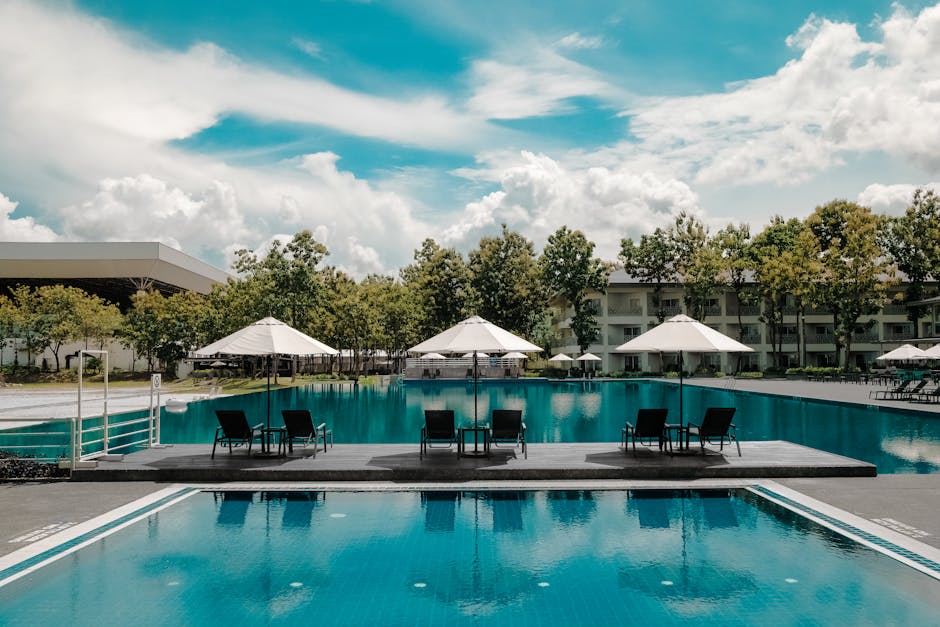Keeping a sparkling clean pool requires more than just skimming leaves and adjusting the pH. At the heart of a pristine pool environment is an effective chlorination system. In this blog, we’ll dive into the world of pool chlorinators, explaining their crucial role and sharing tips on how to manage them for the crystal-clear pool you’ve always dreamed of.
The Role of Chlorinators in Pool Maintenance
At the core of every sparkling pool is a diligent chlorinator working behind the scenes. Think of your pool’s chlorinator like the heart of your swimming pool, pumping necessary chlorine throughout to keep the water clean and safe from bacteria and algae. By effectively distributing chlorine, these devices ensure that your pool remains a refreshing and sanitary space for everyone to enjoy.
The importance of maintaining a clean swimming environment cannot be overstated. Without the constant action of a chlorinator, pools quickly become breeding grounds for microorganisms that pose health risks. Effective chlorination breaks down harmful bacteria and sanitation byproducts, making the pool environment safe and inviting. It’s this critical balance that underscores the significance of having a well-functioning chlorinator in your pool maintenance toolkit.
Types of Pool Chlorinators and How They Work
Understanding the varying types of chlorinators can vastly simplify your pool maintenance. Essentially, there are three main types: inline, offline, and floating chlorinators. Inline chlorinators are integrated into your pool’s plumbing, ensuring a direct flow of chlorine. Offline models, on the other hand, are connected via tubing but not integrated directly into the plumbing—offering flexibility in installation. Floating chlorinators, perhaps the simplest, float freely in your pool, gradually dispensing chlorine.
Each type of chlorinator has its unique method of introducing chlorine into your pool. Inline and offline chlorinators use specially designed tablets or sticks, which dissolve at a controlled rate, ensuring a steady release of chlorine. Floating chlorinators also use chlorine tablets but require more frequent monitoring to ensure they’re effectively sanitizing the pool. The choice between these options often comes down to convenience, pool size, and personal preference.
Choosing the Right Chlorinator for Your Pool
Selecting the perfect chlorinator for your pool might seem daunting, but it fundamentally boils down to assessing your pool’s specifics and your lifestyle. Consider the size of your pool first. Large pools may benefit more from inline or offline chlorinators due to their efficiency and capacity for larger amounts of chlorine. For smaller pools or above-ground pools, a floating chlorinator might be sufficient and more cost-effective.
Another vital aspect to consider is the ease of maintenance. Inline and offline chlorinators, while efficient, might require a more hands-on approach when it comes to adding chlorine or cleaning the equipment. Floating chlorinators, in contrast, offer ease of use by simply placing them in the pool, though they may not provide as consistent a distribution of chlorine. Balancing these factors is key to choosing the right chlorinator for your pool.
Installation and Maintenance: Getting the Most Out of Your Chlorinator
Proper installation and regular maintenance of your pool chlorinator aren’t just recommended; they’re essential for the longevity of your pool’s health. Installation processes vary by type, so following the manufacturer’s instructions or consulting with a professional is a must. Once installed, routine checks will ensure your chlorinator isn’t just functioning, but optimally serving your pool.
Maintenance routines might include cleaning the chlorinator regularly to prevent clogging, checking for leaks in inline and offline systems, and ensuring the chlorine levels in your pool remain within the recommended parameters. It’s this ongoing care that maximizes the effectiveness of your chlorination system, ensuring that your pool remains a hygienic and delightful retreat throughout the swimming season.
Troubleshooting Common Chlorinator Problems
Even the best chlorinators can run into issues, from clogging to chlorine feed problems. Recognizing and addressing these issues promptly can prevent more significant problems down the line. Clogging, one of the most common issues, can often be resolved by cleaning the chlorinator thoroughly, ensuring that water can flow freely and distribute chlorine effectively.
Another frequent issue is the incorrect distribution of chlorine, leading to either too much or too little being dispensed. This can be caused by incorrect settings or malfunctioning equipment. Regularly testing your pool water and adjusting the chlorinator accordingly ensures that you maintain the perfect balance for a clean, safe pool environment.
Beyond Chlorination: Additional Tips for Pool Maintenance
Chlorination is just one part of a holistic pool maintenance routine. Keeping your pool clean involves regular skimming, vacuuming, and brushing to remove dirt and debris. Additionally, monitoring and adjusting the pH and alkalinity levels are crucial for preventing scale buildup and ensuring the chlorine works effectively. Lastly, keeping an eye on the pool’s filtration system and making sure it’s operating correctly is essential for maintaining overall pool health.
Another often overlooked aspect of pool care is the maintenance of surrounding areas. Ensuring that the deck and pool cover are clean can prevent dirt and debris from entering the water, reducing the burden on your chlorinator and filtration system. With consistent care and attention, maintaining a clean, inviting pool becomes a manageable and satisfying task.
Dive Into Clarity: Mastering Your Pool Chlorination
Understanding your pool chlorinator is the key to maintaining a swimming oasis that’s always inviting and safe. By choosing the right type, keeping up with regular maintenance, and adjusting as necessary for pool usage and weather conditions, you’ll ensure your pool remains a pristine retreat. Remember, proper chlorination is not just about adding chemicals; it’s about creating lasting memories in a clean, healthy pool.

